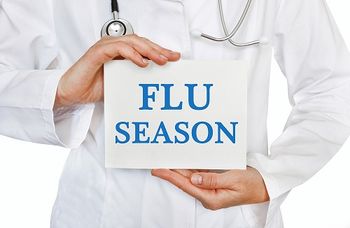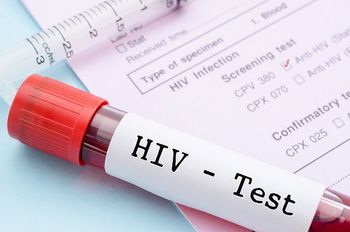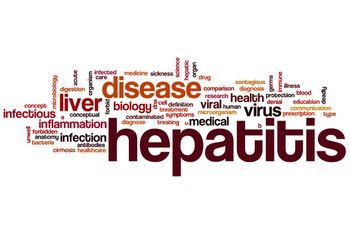
The Michigan Department of Health and Human Services has reported an increased incidence of pertussis and is working with the Oakland County Health Division to work on ways to promote awareness of the issue.

The Michigan Department of Health and Human Services has reported an increased incidence of pertussis and is working with the Oakland County Health Division to work on ways to promote awareness of the issue.

UNAIDS calls for access to HPV educational materials as well as cervical cancer screening and treatment for HIV-positive women.

Johns Hopkins University Bloomberg School of Public Health experts discuss the issues associated with Trump’s executive order on refugees during an online symposium.

High flu activity and new pediatric flu-related deaths around the country lead some area schools to announce temporary closures in hopes of preventing further spread of the virus.

The retrospective study included a cohort of patients from six countries across Europe who were diagnosed with HCV and received daclatasvir during the Named Patient Program.

Researchers from Salk Institute make a surprising discovery regarding the link between sickness-induced behaviors, such as loss of appetite, and their role in how the body fights off infection.

Although President Donald Trump’s previous skepticism on the flu vaccine was certainly not helpful in terms of encouraging individuals to be vaccinated, research indicates that celebrity commentary on a topic makes it more likely that the audience will recall the message and be motivated to react to it.

Contagion® is celebrating it’s one-year anniversary today, February 7, 2017. As we hit this milestone, we wanted to look back and remember the three articles that launched Contagion® on this day in 2016.

A new study finds that cancer incidence in individuals with cirrhosis is lower than originally believed—at most, about 4%.

Researchers have found incidence of multidrug-resistant HIV-1 infection, despite the use of preexposure prophylaxis (PrEP).

Researchers from the University of Pennsylvania Perelman School of Medicine show that many young transgender women are aware of HIV PrEP and have positive attitudes toward it.

Johns Hopkins University researchers conducted a survey with the goal of finding out the prevalence of HIV testing among nonclinical community-based organizations in Baltimore, Maryland.

Due to the multi-county spread of mumps in Washington, health department officials are calling for individuals to receive the MMR vaccine.

The Centers for Disease Control and Prevention (CDC) has issued an elevated risk travel alert for the country of Brazil as they are currently experiencing an outbreak of yellow fever.

A new study from the United Kingdom highlights the importance of antibiotic restriction in the reduction of hospital-acquired C. difficile infections.

According to the Belgian researchers, Sofosbuvir in combination with simeprevir with or without ribarivirn was found to be well-tolerated and efficacious.

Falcons tight end, DJ Tialavea, has been personally touched by cardiomyopathy.

Throwing a Super Bowl party? There are a few food poisoning hazards that you should be mindful of this weekend.

Called Mama-Ope, or Mother’s Hope, this system was inspired by Koburongo and designed by a colleague named Brian Turyabagye.

Researchers find that having a local team in the Super Bowl sets a city up for a substantial increase in flu-related illness and deaths during influenza season.

Catch up on last month's top infectious disease news coverage from Contagion®.

Researchers from the Yale School of Public Health have found that the synthetic controls method developed by Google may effectively allow them to measure the impact of vaccines.

Higher rates of self-reported drug use exist among the HIV-positive population, highlighting the need for interventions in at-risk populations.

Researchers at the Weizmann Institute of Science have discovered that phages are able to communicate with each other in order to coordinate how to best approach the infection process.

University of Washington researchers have discovered that telomeres are shorter in adults who had experienced more diarrheal infections as infants.

Researchers found the experimental vaccine could potentially inhibit severe diarrhea and pseudomembranous colitis by inducing a functional antibody response that can neutralize the two main disease-causing toxins (toxin A or B) produced by C. difficile.

The new pediatric vaccine formulation for diphtheria, tetanus, pertussis, and poliomyelitis (DTaP) may solve the issue of vaccine schedule adherence.

Centers for Disease Control and Prevention officials are reporting epidemic flu levels across the United States, along with three new pediatric deaths from the virus.

The FDA has released a Consumer Update that warns individuals that improper use of nasal rinsing devices, such as neti pots, can actually increase risk of infection.

In a review article published in Rheumatic Disease Clinics of North America, researchers discuss the main rheumatologic diseases associated with chronic HCV infection, and how DAAs have affected these extrahepatic manifestations.